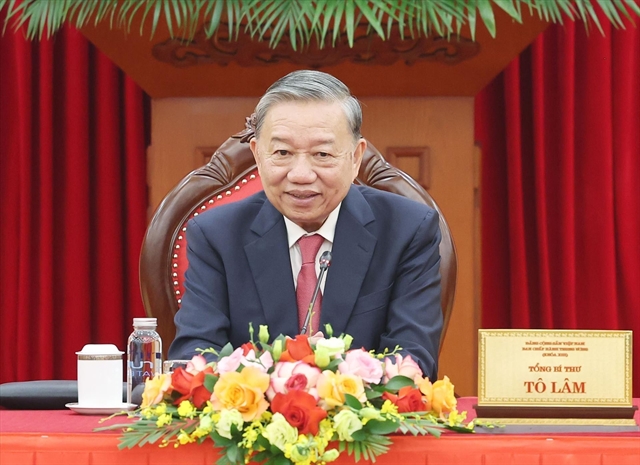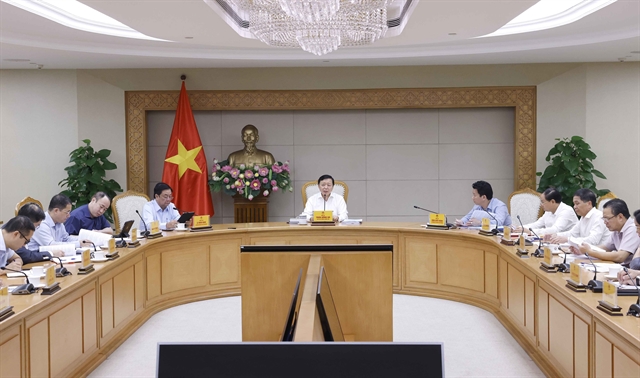 Politics & Law
Politics & Law


|
| Deputy Prime Minister Trần Hồng Hà (centre) chairs the meeting. — VNA/VNS Photo Doãn Tấn |
HÀ NỘI — Documents guiding the Law on Land 2024 implementation must be compiled early, completely resolving issues with different opinions, ensuring synchronisation and consistency, said Deputy Prime Minister Trần Hồng Hà.
At a meeting with ministries’ leaders on developing guidance documents for the law, which took place on Tuesday in Hà Nội, Deputy PM Hà emphasised that the PM had requested ministries to urgently develop detailed guidance documents.
The documents must be submitted to the National Assembly (NA) for consideration, allowing the Law on Land 2024 to come into effect at the beginning of July this year, five months earlier than previously scheduled, in January 1, 2025.
This requires great efforts and determination of ministries, fully performing all steps of the legal document development process.
In particular, the legal documents that each ministry and sector is responsible for compiling must be cohesive, carrying out the goals set out in the Land Law and being unified with other concerned laws.
The Ministry of Natural Resources and Environment (MoNRE) should clarify issues with differing opinions, such as on policies; and urgently take advice from localities, businesses and socio-political organisations.
Regarding regulations on land compensation, resettlement and valuation, Deputy PM Hà requested to promote digitalisation and conduct land administrative procedures in the electronic platform.
From there, the MoNRE can have simplified procedures for a decree stipulating the penalties for administrative violations in the field of land.
Regarding drafting two decrees on land use fees and land rent, the Deputy PM noted that policies and financial tools were needed to handle agricultural and forestry land areas that have not been or are slow to be put into use.
The Ministry of Agriculture and Rural Development is responsible for detailing conditions and criteria for monitoring, inspecting and evaluating regulations on forestry land and rice growing land.
Deputy PM Hà also requested the Ministry of Justice to work with the MoNRE to urgently prepare documents and ask the NA’s permission to put the Law on Land into effect in July.
The Ministry of Construction’s duty is to promulgate documents detailing the Law on Housing 2023 and the Law on Real Estate Business 2023 to promptly take effect with the Land Law.
Reporting at the meeting, Deputy Minister of Natural Resources and Environment Lê Minh Ngân said that the MoNRE had presided over the drafting of six decrees and four circulars guiding the laws.
The draft decree instructing the Law on Land implementation has 10 chapters and 115 articles.
It regulates tasks and structure of land registration organisations and land fund development organisations; land use planning; land recovery and land requisition; management and exploitation of land funds.
Land allocation, land lease and changing land use purposes; evaluating land management and use; specialised land inspection; resolving land disputes, handling violations on land laws are also clearly prescribed.
The MoNRE established a drafting committee and editorial team to give opinions on the decree, and at the same time collect opinions from concerned departments of 63 provinces and cities.
Minister of Agriculture and Rural Development Lê Minh Hoan said that many new problems arose while amending and supplementing No 156/2018/NĐ-CP related to the Forestry Law and rice growing land.
The ministry is collecting comments on the draft decree according to regulations. — VNS




